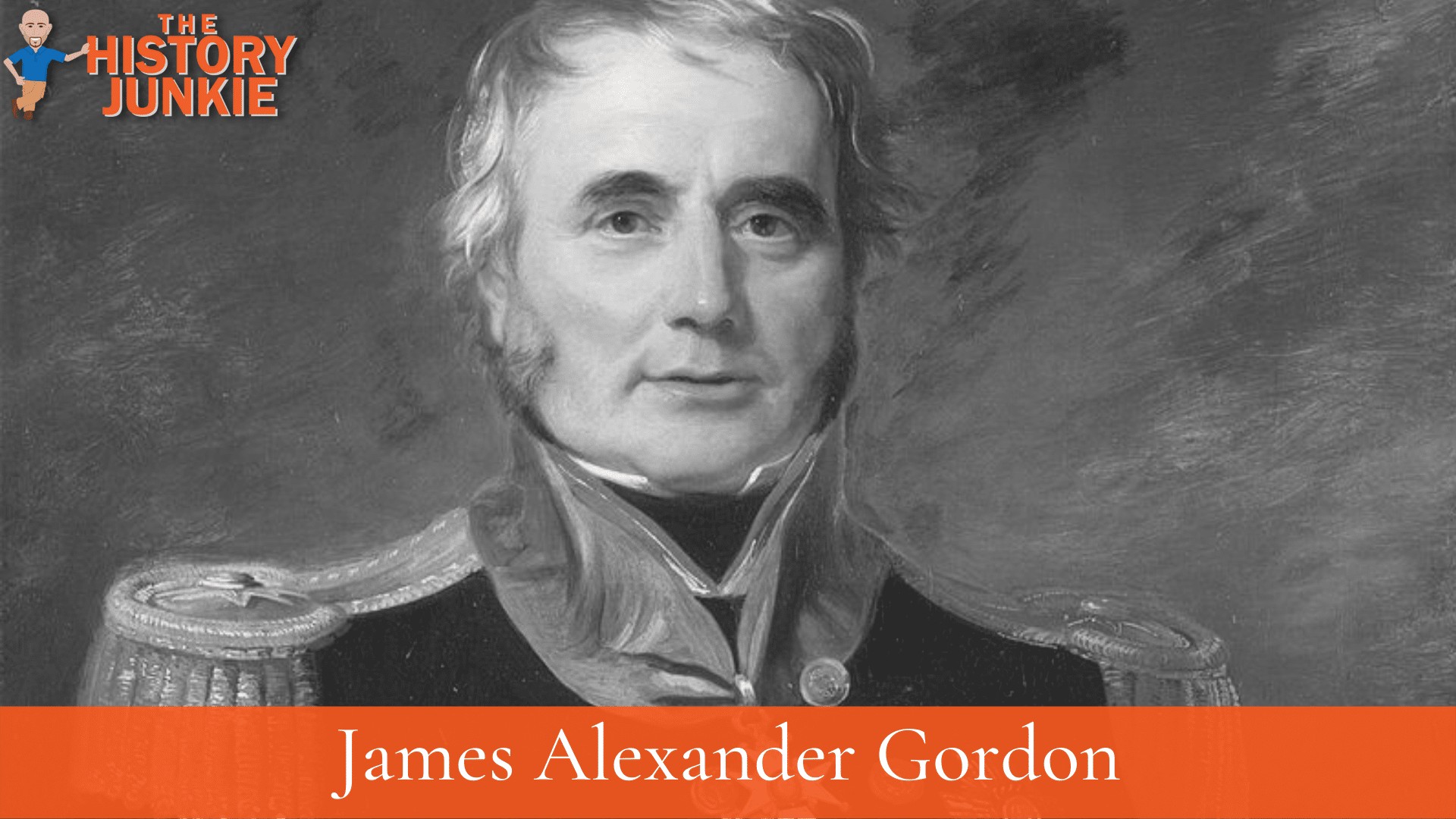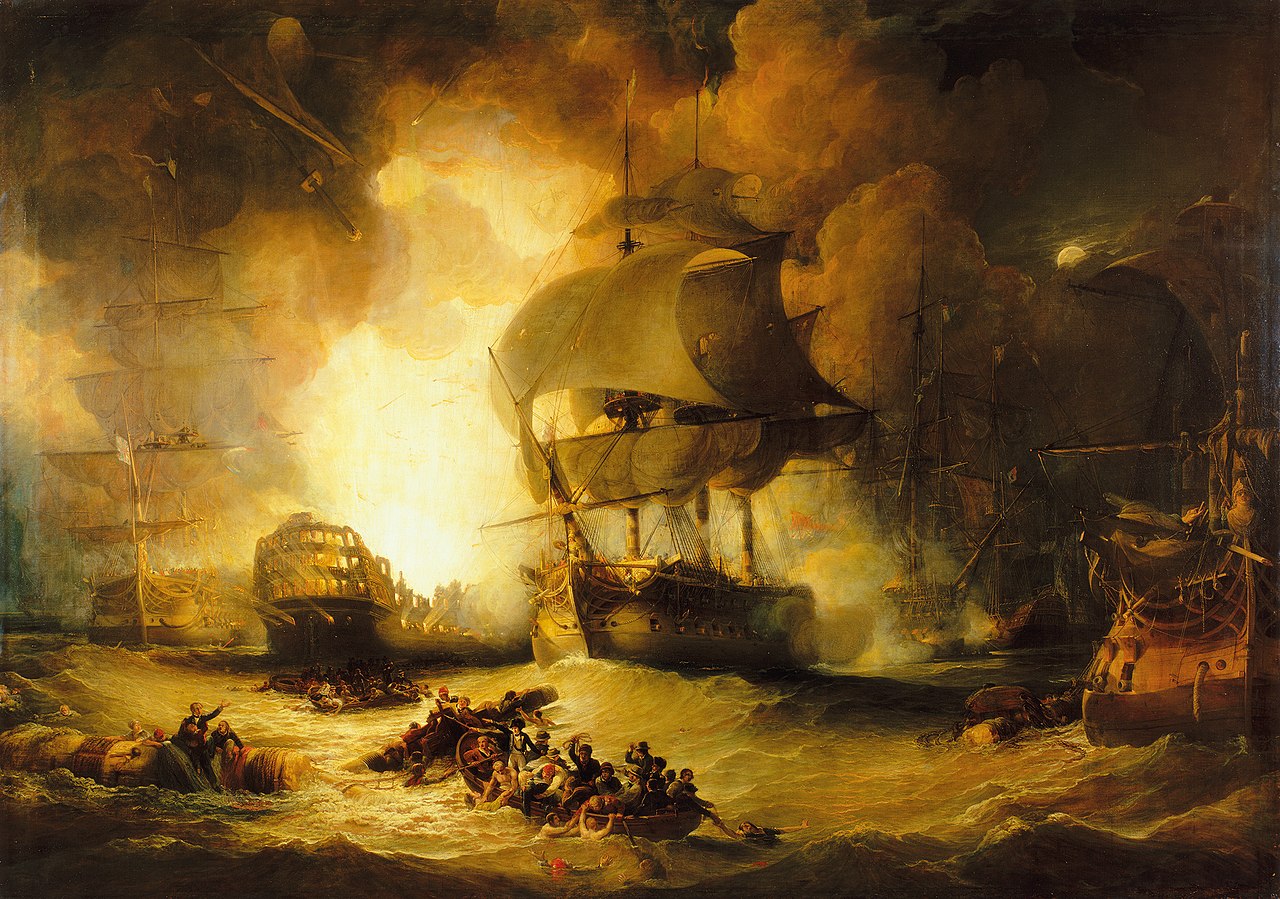Admiral of the Fleet Sir James Alexander Gordon, KCB, RN, was a distinguished British officer in the Royal Navy.

His 75 years in the service, from Midshipman to Admiral of the Fleet, were unprecedented in their duration.
He served in the Napoleonic Wars, War of 1812, and what seemed like everything that the British Empire was involved in during the 19th century.
Early Life
Born the eldest son of Charles Gordon of Wardhouse, Aberdeenshire, and his wife, a daughter of Major James Mercer of Auchnacant, Aberdeenshire, Gordon joined the Royal Navy in November 1793.
He was assigned to the 74-gun HMS Arrogant in the Channel Squadron, took part in the blockade of Brest, and served under Lord Howe at the Battle of the Glorious First of June in June 1794.
He spent time on harbor duty in the 74-gun HMS Invincible, in the 74-gun HMS Ramillies, the 74-gun HMS Defence, and finally, the 24-gun HMS Eurydice during 1794.
He transferred to the frigate HMS Révolutionnaire in 1795 and served under Admiral Lord Bridport at the Battle of Groix in June 1795 during the French Revolutionary Wars.
Gordon moved to the 90-gun ship-of-the-line HMS Namur in 1796.

He transferred to the 74-gun HMS Goliath and served under Sir John Jervis at the Battle of Cape St Vincent in February 1797; having been promoted to midshipman, he served under Admiral Sir Horatio Nelson at the Battle of the Nile in August 1798 when a crushing defeat was inflicted on the French fleet commanded by François-Paul Brueys d'Aigalliers.
He became the second lieutenant of the sloop Bordelais in January 1800 and, while escorting a convoy to the West Indies, fought an action with three French brigs, capturing one in January 1801.
In the Caribbean later that year, Gordon, on an independent mission, was captured by the Haitian government of Toussaint Louverture and spent four months in prison before being released by the cartel.
He was made first lieutenant of the 18-gun brig HMS Racoon in 1802 and returned to the West Indies.
Racoon's capture of the French corvette Lodi in July 1803 led to Gordon's appointment as commanding officer of HMS Raccoon in October 1803 and his promotion to commander on March 2, 1804.
Napoleonic Wars, War of 1812, and Death
James Alexander Gordon played a distinguished part in Captain William Hoste's action off Lissa in 1811. Hoste's three frigates and a 22-gun sixth-rate comprised the sole Royal Naval strength in the Adriatic.
They fought an action against an attacking Franco-Venetian squadron off the island of Lissa, where the British were based, and although outnumbered, managed to defeat the invaders.
All four British captains were awarded gold medals. In the same year, Gordon lost a leg while capturing the Franco-Venetian 'Pomone,' 40 guns, near Corfu, and in 1814 he commanded a squadron against the Americans.
He was later the last Governor of Greenwich Hospital, dying just before it closed in 1869. Exceptionally, he was buried (under a handsome granite tombstone) in the officers' enclosure of its old burial ground, adjacent to the National Maritime Museum, although other burials there had ceased in 1857.
In 1814, he commanded a squadron against the Americans and would participate in the Battle of Baltimore.
Promoted to rear-admiral on January 10, 1837, Gordon became Lieutenant-Governor of the Greenwich Hospital at Greenwich in July 1840.
Promoted to vice-admiral on 8 January 1848, he succeeded Sir Charles Adam as Governor of Greenwich Hospital in October 1853.
He was promoted to full admiral on 21 January 1854 and, having been advanced to Knight Grand Cross of the Order of the Bath on 5 July 1855; he was promoted to Admiral of the Fleet on 30 January 1868.

Gordon died at Greenwich Hospital on 8 January 1869 and was buried on the hospital grounds.
Exceptionally, he was buried (under a handsome granite tombstone) in the officers' enclosure of its old burial ground, adjacent to the National Maritime Museum, although other burials there had ceased in 1857.
